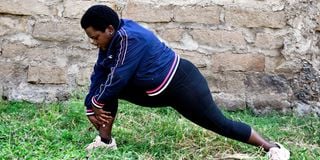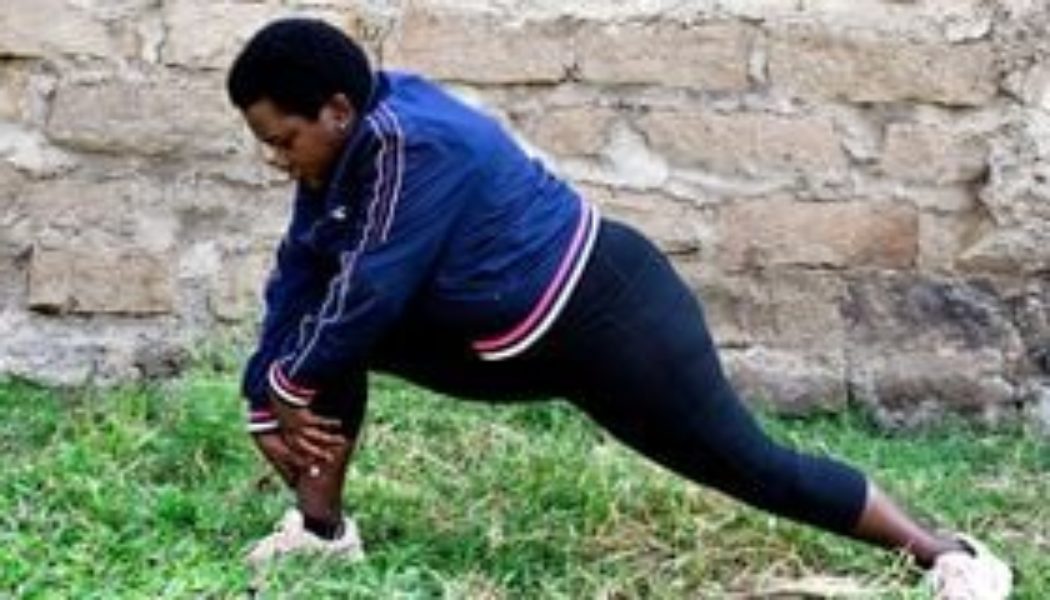Achieving a healthy body and perfect physique has one universal rule of thumb: If you snooze, you lose. Exercise is a long game.
It is not a short-term programme that one abandons after achieving certain goals because the body can lose the gains it has made over time upon regression.
As Dennis Okaka—a certified physiotherapist and fitness coach based in Nairobi—puts it, it may involve periods of intense activity or stretched-out sedentariness for different workout adherents.
“Most people have their fitness goals cut out when they take up a routine at a gym, in the swimming pool, or on the track, but with time, some fall back and begin to lose the gains they had made while they routinely worked out,” he says.
The three categories
Dennis has been a fitness coach in Kenya and Sweden for the last nine years and over time, he has condensed exercising into three categories.
“There are those just starting; I call them the novices, anything between zero and two years falls in this category. The next category is the intermediate, those between two to five years of active exercises. The last group is the advanced. These are people with more than five years of active workout discipline. From my experience, the group that regresses the most is the first one. The novices. Unmet expectations rank highest among the reasons they give for regressing,” says the expert, who has 17 solid years of active working out.
The reasons for straying vary. For some, it is a change in their professional or family obligations, relocation, the feeling that they have already achieved their fitness goals, or a lack of enthusiasm.
In 2014, Emma Waigwa picked up jogging to attain fitness.
“It was out of personal choice. I was what many would consider physically fit. Lean and in great shape. Progressively, I started attaining higher personal goals and would comfortably take a 10-kilometre early morning jog without pausing,” she says.

Emma Waigwa stretches before her morning jog outside her home in Utawala on September 20, 2024.
Photo credit: Francis Nderitu | Nation Media Group
Gaining 30 kilos
That was her in college. After she graduated and transitioned to working and family lives, she gradually dropped this routine, which led her to put on weight like never before.
“I added about 30 kilos and started to feel increasingly unfit; walking became a challenge, and simple tasks like climbing a flight of stairs became hard.”
When she went back to regular jogging about four months later, she could barely do one kilometre of continuous jogging.
“The gains I had made previously had all been washed out. I had not been that unfit even before I started exercising. That was all the motivation I needed to hit the road again.”
Work-related travel and long working hours were the main reasons for Michael Muema—a finance executive based in Nairobi—to get off the treadmill.
Health scare
“I started exercising in 2017 following a doctor’s advice. My work involves sitting for long hours. Couple that with a laissez-faire approach to diet, and I was looking at a lifestyle disease if interventions were not made. I enrolled in a fitness class, and visible changes began in the following months. I could breathe easily, exercise without heightened fatigue, and experience less muscle pain post-workout,” says Michael.
As the body transformation became apparent, his gym attendance started having gaps.
“I started travelling a lot, and when I wasn’t travelling, I had stretched working hours,” says Michael.
Upon starting, one needs to calibrate their journey with intentionality.
“I think of fitness as an endless intentional journey. To maintain it, one must keep at it even when they don’t feel like it. Granted, there are times when it is impossible to hit the gym or keep up with a regular regime, for such people, I recommend basic workout routines. I usually say that if you can have a space where you can move two steps in all directions, then you have all that is required to do a simple routine that will help you not lose your gains,” Dennis says.
That sounds easy coming from a person who has been in the fitness circles for nearly two decades, but how difficult is it for other people?
“I had to make deliberate decisions to get my body back. This meant waking up earlier and making next-day plans beforehand so that my exercises were not interrupted by other early morning activities. It took time for me to gain the endurance I had before. It took many months to get there and many more to attain the fitness I wanted—something I believe I would not have had to do had I not fallen off,” says Emma.
Refuse to hit potential
Even after putting the horse back on the road, she still hasn’t gotten back to her full potential or the highs she used to hit in terms of her workouts. The body fell hard and refused to rise to that level again, but she had been pushing. The BDLife caught up with her just after her morning jog.
“Right now, I am just from doing a seven-kilometre run without pausing. I could say I am doing well, but, this is not my best,” she says.
This is also true for Michael, who, after regressing, struggled with time and willingness to get back to the gym.
“Seeing your gains go down the drain is painful. It fills you with workout guilt, but mastering the desire to get back is equally difficult. I dare say that it is harder for us backsliders than for first-timers. I am back to consistency, even though it is a little discouraging to know that I am working on the same goals I had achieved before instead of aiming higher,” she says.
Hefty price to pay
Both Michael and Emma agree that there is a hefty price to pay when one goes back to their workout routines.
Can fitness aficionados avoid fitness regression when they can no longer keep up? The simple answer, as Dennis puts it, is yes.
“Everyone has different goals and fitness needs. Luckily, there is a science to assess and determine one’s needs. Seeking the services of qualified coaches can help you plan an alternative regimen that suits you and can give you more wiggle room to do other things. Everyone needs to acknowledge that pursuing fitness does not box you into a vacuum, life continues, and striking a balance is part of your fitness, mentally,” says Dennis.
He continues to say there is a need to disabuse the notion that intensity is greater than consistency.
“An everyday routine is greater than a once-a-week high-intensity activity. Beyond helping you remain fit, it teaches you discipline—this is fitness’ greatest ingredient.”









